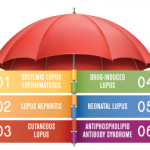Rheumatologists should not be falsely reassured by a normal mean blood pressure in lupus patients, according to a study from Johns Hopkins University that found age-related blood pressure patterns in systemic lupus erythematosus (SLE) differ from the general population and that increased diastolic blood pressure variability (BPV) is highly associated with cardiovascular events in SLE.1…








